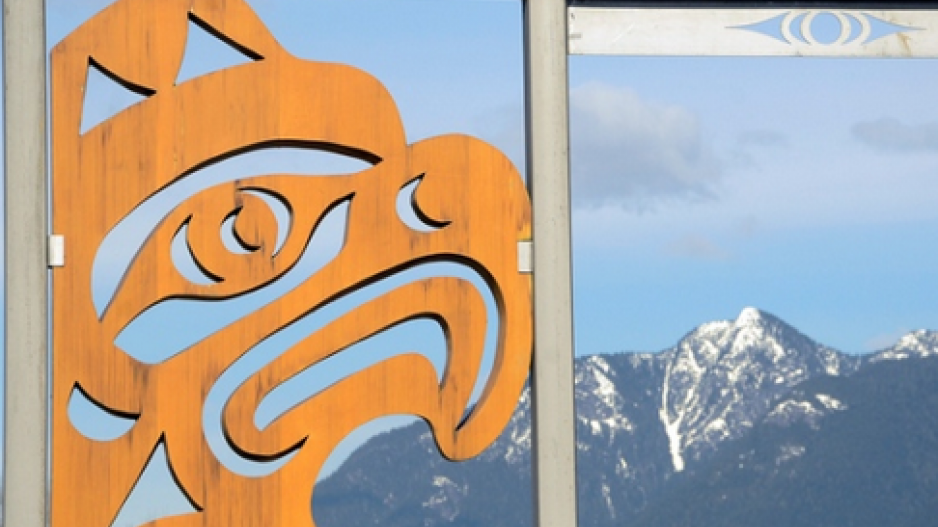What happened: First Nations critical of the Trans Mountain pipeline expansion are expressing frustration and disappointment over the federal government’s decision to proceed with it.
Why it matters: The project could face new legal challenges from First Nations groups, further delaying a costly government project that, at present, has no set timeline.
The Squamish Nation says Canada’s court-mandated consultation with its community was a “shallow” attempt at consultation that has failed to address the nation’s concerns.
In response to the federal government’s decision to approve the Trans Mountain pipeline expansion project, the Squamish Nation said Tuesday it is weighing its options, including possible legal challenges.
“The failure to meaningfully engage with rights holders means this government is either not serious about building this pipeline or not serious about respecting Indigenous rights,” said nation spokesperson Khelsilem.
In announcing his government’s long-awaited decision, Prime Minister Justin Trudeau said Canada doubled the size of its consultation teams as it reinitiated Phase III consultations with Indigenous communities. Canada’s Minister of Natural Resources personally met with more than 60 different communities, Trudeau said.
“At the end of the day, we listened. And we are acting on what we heard,” said Trudeau, acknowledging concerns about salmon habitat, orca populations and increase tanker traffic off B.C.’s coast.
“We listened to community concerns and we are acting on community ideas.”
Some First Nations strongly disagree.
Last August, the Federal Court of Appeal unanimously ruled that Canada had failed to meaningfully address the concerns brought forward by six First Nations in British Columbia who were challenging the line.
The Tsleil-Waututh Nation, alongside Squamish Nation, was among the nations named in the court decision.
Chief Leah George-Wilson called the decision disappointing, but not surprising.
“Unfortunately, this feels too familiar – Canada repeated many of the same mistakes from last time. We will review the decision carefully with our team, and we will consider our legal options to ensure our rights are protected,” she said.
“Right now Prime Minister Trudeau is approving a project that is a violation of our stewardship rights and our law.”
Brian Livingston, an executive fellow with a legal background in Indigenous matters at the University of Calgary, believes it will now be more difficult for a court to find the federal government didn’t properly consult communities in its second attempt.
“My assessment is they’ve paid specific attention and particular attention to the two issues,” he said, referencing the consultation issues and environmental concerns identified in the Federal Court of Appeal Decision.
“But we’ll see. No lawyer worth his salt will ever say that there’s 100% chance of winning a case or losing a case.”
In his remarks to reporters on Tuesday afternoon, B.C. Premier John Horgan said that, if it was in the interest of British Columbia, the province would join a legal action put forward by a First Nation, depending on the substance of that action.
“I think there’s a variety of different ways that legal challenges might go ahead,” explained Kate Gunn, a lawyer with Vancouver-based First Peoples Law, noting that while the courts have provided a “pretty clear” roadmap of what consultation requires, there still exists a lot of scope within that map.
“If there’s an Indigenous group that has serious outstanding concerns and they haven’t been addressed as part of that consultation process, that could be one of the potential bases for legal challenge,” she said.
“A lot of it will likely hinge on the direction the Federal Court of Appeal gave to the Government of Canada when it quashed the approval last time, and whether the Crown’s consultation this round is consistent with the direction that was given there.”
Consultation, Livingston pointed out, is different than consent, and the court decision asked Canada to pursue an adequate and meaningful expression of the former.
In a joint press release with the Tsleil-Waututh and Squamish nations, Chief Kukpi7 Judy Wilson of the Neskonlith Indian Band – also the secretary-treasurer of the Union of BC Indian Bands – noted she would continue to oppose the project until free, prior and informed consent are recognized and implemented in Canada – a right included in the United Nations Declaration on the Rights of Indigenous Peoples.




